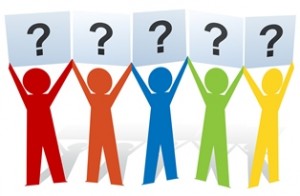 By Judith Orloff MD
By Judith Orloff MD
Adapted from the bestseller, “Emotional Freedom”
To pin down your style of relating, it’s helpful to know your emotional type — and that of your love partner. Your emotional type is the filter through which you both see the world — the default setting of your personality to which you each revert, especially under stress.
Here are the four emotional types from Emotional Freedom, along with their upsides, downsides, and ways to balance them.
Emotional Type #1: The Intellectual
Qualities: You are bright, articulate, analytic, intellectually oriented, and often take refuge in your mind as the first line of coping.
Upside: Extremely logical, comfortable with fixing problems logically and intellectually, great debater, able to stay calm in emotionally heated situations.
Downside: Difficulty connecting with feelings — others’ and your own; give the impression of being snobby, withholding, or cold; obsess about problems; sometimes too serious.
Balance Prescription: Spend more time in your physical/sensual self. Try breathing techniques, vigorous exercise, and practicing feeling the other person’s emotions (empathizing).
Emotional Type #2: The Empath
Qualities: You are highly sensitive, naturally giving, spiritually attuned, and a good listener.
Upside: Gifted healer, helper, and friend; passionate and sensual; intuitive about others’ thoughts and feelings; emotionally responsive; in touch with your body and emotions.
Downside: Easily absorb others’ negativity; prone to anxiety, depression, and fatigue; easily feel hemmed in when living with others; difficulty setting boundaries with draining people.
Balance Prescription: Use positive self-talk and logic to get grounded. Allow frequent quiet and meditation time. Learn to set clear limits and boundaries — say no, take space, walk away, and protect yourself.
Emotional Type #3: The Rock
Qualities: You are emotionally strong for self and others, practical, able to stay cool in a crisis, nonjudgmental.
Upside: Pillar of strength, consistent and loyal, giving, respectful, get along with nearly everyone.
Downside: Can be detached from feelings; harbor anger and frustration; relationships may lack depth; don’t make waves or invite challenges; rather avoid conflict than confront it.
Balance Prescription: Practice activities that are spontaneous. Express a feeling a day. Initiate conversations that are emotional.
Emotional Type #4: The Gusher
Qualities: You know your emotions and share them often, and are spontaneous, direct, and authentic.
Upside: Emotionally articulate, easily forgiving, make and keep supportive networks of friends, value intimate relationships, process hard issues easily.
Downside: Tend to be a drama king or queen, may turn friends into therapists, seek external feedback rather than relying on own intuition, excessive need to share.
Balance Prescription: Practice activities that support and strengthen your self-sufficiency. Give yourself credit, learn to forgive yourself, and practice positive self-talk.
* * * * *
Judith Orloff MD, a UCLA psychiatrist, is author of the New York Times bestseller Emotional Freedom: Liberate Yourself from Negative Emotions and Transform Your Life (Three Rivers Press, 2011 new paperback edition), in which she describes the four emotional types and offers practical tips for transforming the seven most difficult emotions into positive ones. She is also author of the New York Times bestseller Second Sight. For more information and inspiration, visit www.drjudithorloff.com.











